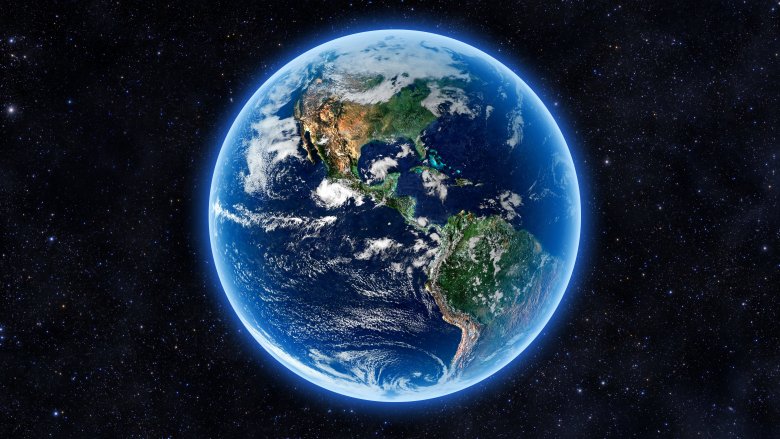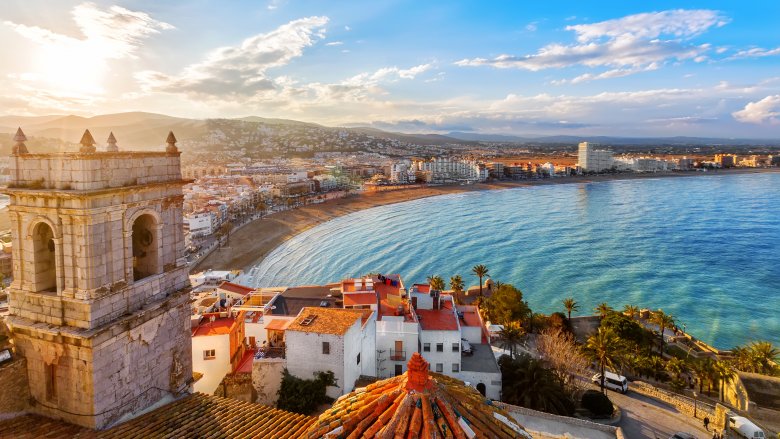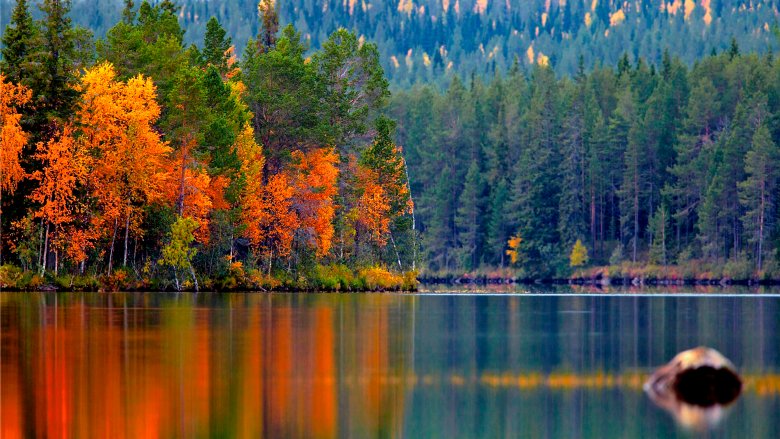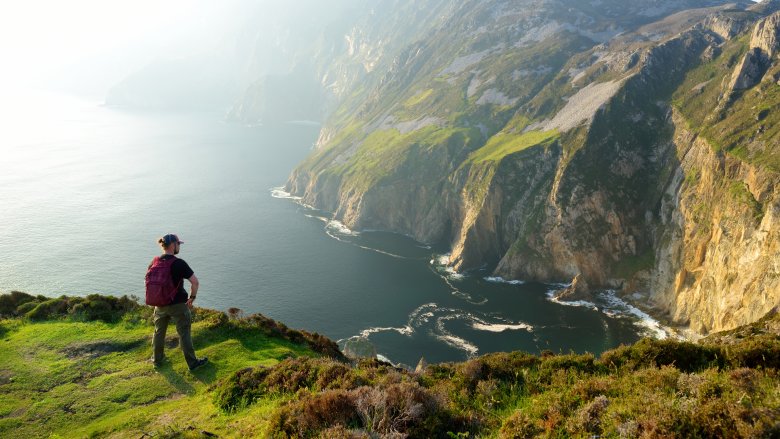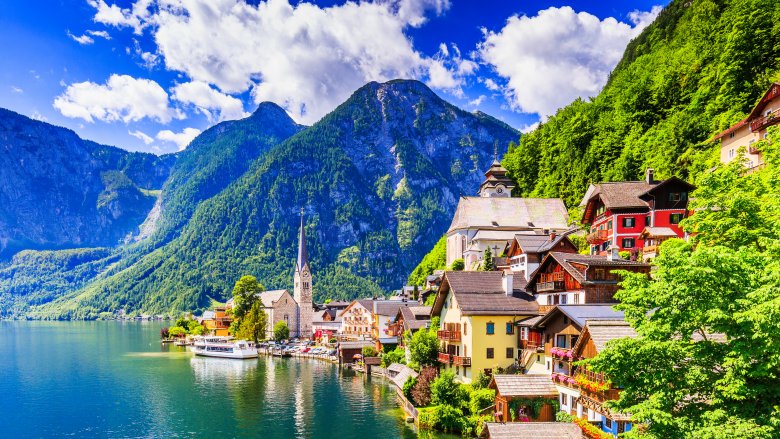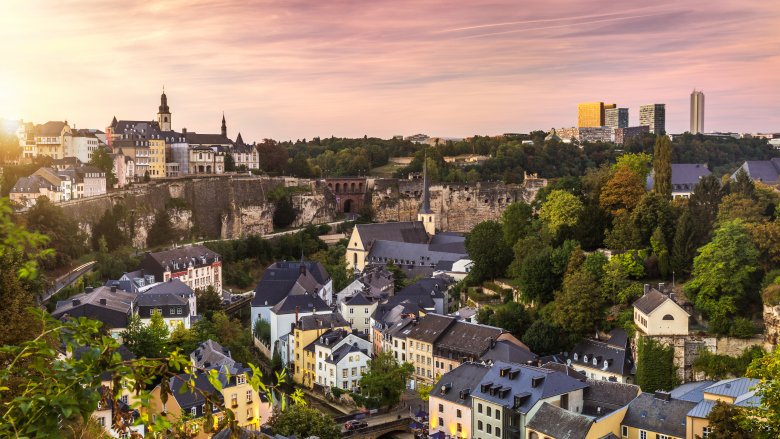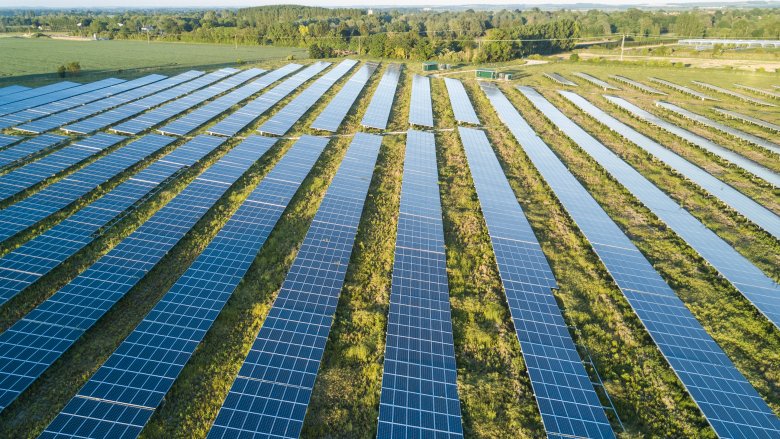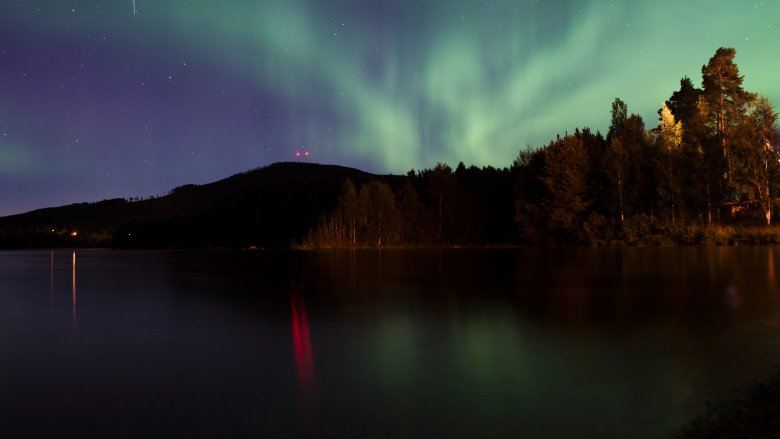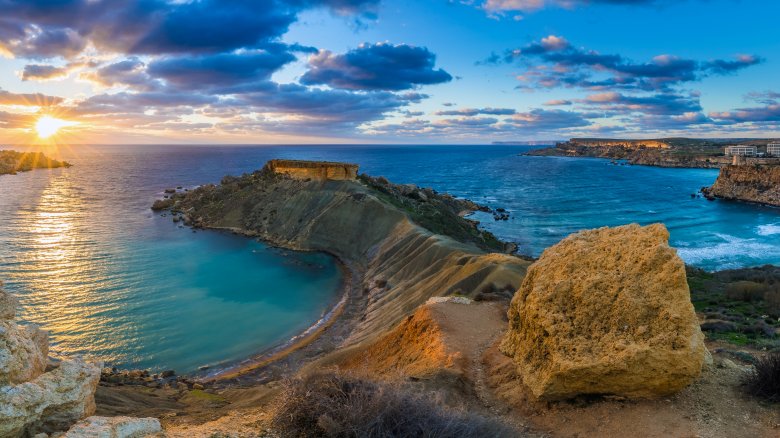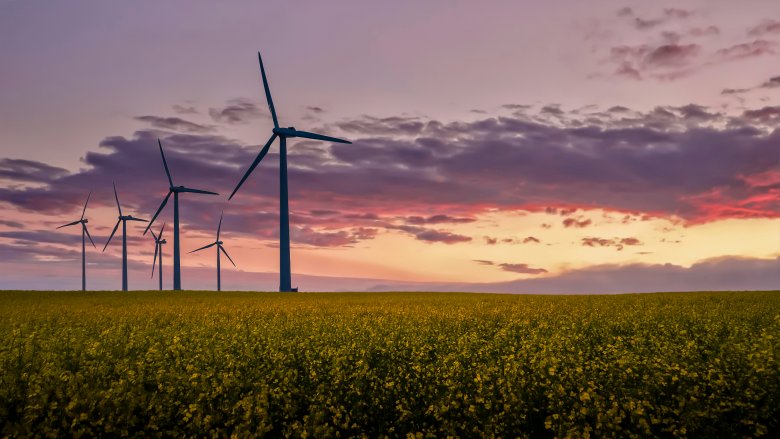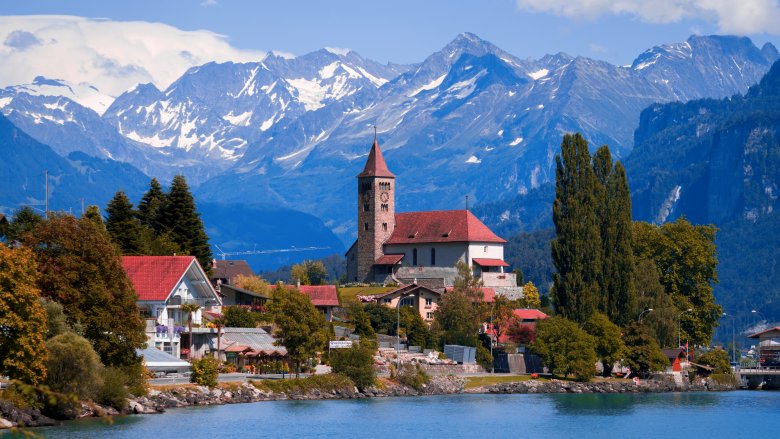These Are The Cleanest Countries On Earth
When you wake up, step outside, and take your first full breath of the outdoors, you hope and pray that the air is clean. Everyone wants to live in a non-toxic, environmentally friendly place, but unfortunately — as the looming threat of climate change has demonstrated — most of our modern world has some issues in this regard. Whether due to fossil fuels, waste products, or outdated policies, the problems of unclean air, water, and sanitation are big issues that are going to require worldwide cooperation to resolve.
Which countries do the best job of keeping things clean on their own, though? There are many standards we could measure this by, but probably the most convenient one is the 2018 Environmental Performance Index (EPI) by Columbia and Yale universities. This study evaluates the cleanliness of every nation on Earth according to 24 indicators, such as air and water quality, to see which ones come out on top. You might think your own country is pretty darn clean, but some of the cleanest countries on Earth will surprise you.
Spain has big plans to keep things clean
In 2018, the Environmental Performance Index ranked Spain as the 12th cleanest country in the world.
However, expect to see the European nation rise even higher in the years to come, thanks to their increasingly ambitious plans. The Guardian reports that Spain is shooting to go fully renewable (and thus become carbon neutral) by as soon as 2050. This will take some work, as it means seriously upping Spain's wind and solar capacity on a yearly basis, plus banning new licenses for fossil fuels and fracking. But Spain is definitely investing the necessary funds to make it happen. Reuters says that the country has reserved 47 billion euros ($53 billion) for public investment in environmental causes, and has discussed issuing green bonds to help businesses commit to environmental reforms. Spain's big cities are also striving for massive eco-friendly changes. According to Vox, Barcelona is aiming to push cars out of the streets and make walkable super-blocks the norm.
Another arena where Spain is rocking out thanks to these same reforms? Health. According to Time, Spain topped the charts as the world's healthiest country in 2019, partly due to environmental factors like sanitation, clean water, and so on. The average life expectancy for Spanish locals is about 86 years.
The land of ice, fire, and renewables
Honestly, no one should be surprised to see Iceland on any list of the world's cleanest countries. While other nations are striving to implement more renewable energy sources, Iceland is already cracking away with almost 100 percent renewable energy, according to the United Nations Chronicle.
How do they do it? Well, it's thanks to the volcanoes. Nine out of every ten Icelandic homes are directly heated by geothermal energy, due to the country's unique positioning between the North American and Eurasian tectonic plates. Also, 11 percent of the country is covered by glaciers, which leads to seasonal melt that runs down the mountains and funnels into Iceland's hydropower industry.
These amazing achievements make it hard to remember that back in the 1970s Iceland was a pretty heavy consumer of fossil fuels. Needless to say, the country's subsequent investments into geothermal energy and hydropower have turned that pollution-belching ship around in a big way, cementing Iceland as a world leader in renewable energy. No country is perfect, though. According to Iceland's climate action plan, the wetlands drained in the 1900s are a major source of carbon dioxide emissions, so the government is currently embarking on a major wetland restoration effort. According to Iceland Review, merely filling in the ditches that were carved into one wetland area in the Úlfarsdalur valley, outside Reykjavik, would cause an emissions reduction equivalent to 150 cars.
All in all, Iceland aims to be carbon neutral by 2040.
Finland's voters put the environment first
Finland is another country that everyone recognizes as a worldwide leader in environmental performance and progression, and this little country more than earns its reputation. In 2018, for instance, a study by the World Health Organization found that Finland possessed the cleanest air on the planet, which the Global Citizen organization credits to the country's strong environmental regulations, investments in renewable energy, promotions of electric cars, and a policy emphasis on protecting the natural environment. Good stuff.
Don't think that Finland is merely resting on its laurels, though, because it's going to ramp things up in the coming years. In the country's 2019 parliamentary elections, The Guardian reports that the issue of climate change sprang up as the number one concern of Finnish voters. A staggering 70 percent of those surveyed said that the new government had to do more to combat climate change, and 80 percent stated that the need for such action was urgent. This widespread demand for faster climate action has encouraged the Finnish government to reach carbon neutrality by 2035 and become a fossil-free society. So yeah, definitely expect to see these fine Finnish folks rank even higher in the years to come.
Ireland is doing great ... for now
When you think of Ireland, what color comes to mind? Probably green, green, and more green, right?
As it happens, this land of lush greenery comes up rather well on the environmental cleanliness rankings. As a nation, Ireland is totally aware that those rolling emerald landscapes are their key tourist attractions, and keeping a clean, natural environment is important for the future of the country (and, you know, the world as a whole).
However, if Ireland wants to retain its place as a top country in the area of environmental friendliness, these guys have some work to do, according to the European Commission. All that natural beauty isn't going to protect itself, and while Ireland's soil is in good condition, one-fifth of the terrain is categorized as peatland ... which stores carbon. When peatland is damaged, it becomes a major source of greenhouse gas emissions, which is bad news. Meanwhile, even though Ireland is supposed to be cutting its emissions by 20 percent in 2020, the country is currently looking at a cut of only one percent, at best. According to The Irish Times, if Ireland wants to achieve its goal of decarbonizing the Irish economy by 2050, the country needs to reverse all of its current trends. So the future isn't looking too great right now, and the Irish will have to move fast if they want to keep all that green from going brown.
Austria keeps the fight going
Austria is known for its beautiful mountains, an array of famous locals — Sigmund Freud and Arnold Schwarzenegger, to name a few — and, of course, its stringent environmental standards, which have produced a nation that ranks highly on the EPI index. Even compared to most other European countries, Austria.org argues that Austria is quite aggressive in how it limits airborne pollutants, regulates pesticides, and handles chemicals, waste, and other environmental hazards. The World Wildlife Fund, meanwhile, points out that Austria recycles more of its waste than any other European country, and it has the highest proportion of organic land (15 percent) in the European continent. Clean living!
While many countries have only recently instituted rigorous environmental policies, the Organisation for Economic Co-operation and Development (OECD) credits Austria with getting started on these issues way back in the '70s. Nonetheless, Austria's future cleanliness does face threats. Forest degradation is a real issue, and while the Danube river — which winds from Germany to Romania — has improved in recent decades, there's still work to be done.
Luxembourg is working on some big improvements
Luxembourg isn't a country you might expect to see ranked as one of the world's cleanest, considering it's got a nasty history with oil and natural gas. Back in 2016, Luxembourg barely broke into the top 20 EPI rankings, according to The Telegraph.
These days, the picture has dramatically changed. Now ranking in seventh place, Luxembourg has taken advantage of its tiny size — no, seriously, the entire country is even smaller than Rhode Island — to implement ambitious climate policies, according to Scientific American. One example is the implementation of an environmental tax known as the "Kyoto cent," a charge on fuel sales which is funneled directly into Luxembourg's climate funds. Luxembourg is also cutting down on the country's infamous congestion levels (and resulting carbon emissions) by implementing free public transportation throughout the country. After all, why sit in traffic with a noisy car if you can grab the bus for free?
Hey, don't doubt the UK
If your image of London is still tainted by a Dickensian portrait of starving orphans and sooty black skies, well, you might be surprised to learn that the Brits have turned that stuff around in a huge way. These days, the United Kingdom is ranked as one of the most environmentally friendly countries out there. In May 2019, for example, The Guardian reported that Britain celebrated the landmark achievement of going an entire week without burning a single piece of coal to generate electricity ... the first time this had ever happened since 1882!
Impressive as a coal-free week might sound, England considers it merely par for the course. The nation aims to ditch coal power altogether by 2025. Meanwhile, they're also shooting for the end of new gas and diesel-fueled automobile sales by 2040, as well as halving the effects of air pollution by 2030, moving to zero avoidable waste by 2050, and doing everything they can to ensure a cleaner, fresher future for everyone around. When all is said and done, the Brits hope to become entirely carbon neutral by 2050.
Sweden is keeping the Earth tidy
When it comes to environmental achievements, Sweden has been — as you would expect — knocking it out of the park. The country hopes to be completely free of fossil fuels by 2040, and they've already made serious headway toward that landmark. According to The Independent, the year 2015 alone saw over half of Sweden's energy coming from renewable resources such as wind and hydropower. Admittedly, the rest came from nuclear power, but in the near future, Sweden aims to phase out this energy source in favor of more wind.
Perhaps the best measure of Sweden's environmental success, as CityLab explains, is the astonishing fact that while many other countries have struggled to keep up with their climate goals (here's lookin' at you, Ireland), Sweden zoomed right up to their 2030 goals a full 12 years early. That's a big deal, and as Sweden continues to build more renewable energy architecture at a quickening pace, the future of this beloved Scandinavian country looks clean and bright.
Hold on ... Malta is one of the cleanest countries?
The fact that Malta comes in at the fourth spot on the EPI rankings is surprising enough that you might be double checking the numbers to make sure nobody flubbed. Honestly, Malta never would've scored so high in the past, but in recent years, the country has seen a slew of positive green developments. Malta Today writes that, in the environmental sector, there have been significant improvements in areas like air quality, biodiversity, and less infringements upon the natural environment, with only two negative incidents recorded since 2015. Meanwhile, Malta International Airport has worked hard to reduce its carbon footprint year after year, with big investments in renewable energy equipment.
However, if Malta wants to keep on improving, they have a tough road ahead. Between rapid population growth, causing higher electricity use, and an increase in private cars on the road — not to mention many new developments on virgin land — their current issues will likely be exacerbated. Also, the fact that Malta recycles only seven percent of its waste isn't too great.
Gotta love those Danish winds
Hey, want to talk about renewables? Take a look at Denmark, the third cleanest country on the globe. Back on one particularly blustery day in 2015, Denmark's wind turbines were able to produce 140 percent of the entire country's electricity needs. And 80 percent of the excess power was donated to Germany and Norway, while Sweden got the remaining 20 percent. So yeah, Denmark is like the awesome neighbor who mows your lawn for you. Now, sure, not every day is quite so windy, but incidents like this one prove that the vision of a world powered by renewable energies isn't some utopian fantasy, but rather, a real thing that can be achieved.
By 2035, Denmark hopes to have 84 percent of their regular electrical needs coming from wind power, and they're striving to make heavy investments in the environmental sector. For example, take the city of Copenhagen. According to The New York Times, Copenhagen has already cut their emissions by 42 percent since 2005, and Mayor Frank Jensen hopes that he can mobilize the city, and the national government, to create an entirely carbon neutral Copenhagen by 2025.
All hail France
Hey, the Paris Agreement happened in Paris for a reason. You don't get to stick your name on something unless you've already proven that you're good at that thing.
As of 2019, the land of the world's best cheese and wine is aiming to double its renewables capacity under a new ten-year energy plan. What does that mean? Basically, France is boosting solar, wind, and hydropower, cutting down on the nuclear reactors, and making a cleaner future happen faster. When it comes to fossil fuels, Reuters says that France will officially ban the sales of new gas and/or diesel cars by 2040, in the hope of being carbon neutral by 2050. The electric car takeover is really happening, folks.
Now, while these examples paint a nice portrait of France's future, what about the present? According to the World Economic Forum, France has risen to become the world's most sustainable country, thanks to proactively taking on eco-farming initiatives, fixing food waste issues, and promoting healthier lifestyles among the population. As far as farming goes, France hopes that the majority of French farmers will sign on for their new agroecology policy by 2025, which includes practices such as cutting back on chemical fertilizer use and rotating crops to promote more fertile soil.
Switzerland is the cleanest country on Earth
Say hello to Switzerland, which the EPI ranks as the number one most environmentally friendly country in the world. The World Economic Forum largely credits this achievement to Switzerland's aggressive climate change laws, clean air, and biodiversity, all of which have worked together to keep this clean, pristine country ... well, pretty darned clean and pristine.
Of course, the cleanliness of Switzerland's cities didn't happen by itself. Instead, it's mostly due to a high investment in sanitation. According to OECD reports, Switzerland has one of the world's highest waste recycling rates — over 50 percent, if you're curious — and as House of Switzerland points out, the country is a worldwide leader in developing innovative green technologies. One recent example of this, according to Reuters, was demonstrated in 2018 when the small Swiss firm Climeworks AG won $31 million to invest into technologies that suck carbon dioxide right out of the air.
Most importantly, the Swiss don't sit by the sidelines when it comes to enacting climate change initiatives. In 2017, Reuters reported that Swiss voters had mobilized in support of the government's plan to provide billions of dollars to renewable energies, as well as banning nuclear power plants. So while Switzerland might be a seriously clean place to live in the present day, the future of this mountainous country is primed to be even cleaner.
Note: If you came here looking for the USA, then you might be disappointed to learn that the U.S. doesn't even crack the top 20. You've got work to do, America!
